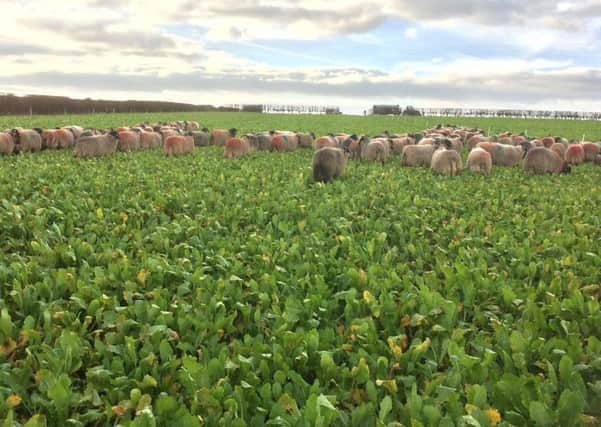Michael Gove: Why farming revolution is bigger than Brexit


Few professions take a longer view than agriculture. Farmers plan, invest and produce for the long-term. While those of us in Westminster live in a world of hourly Twitter storms and daily news cycles where a week is now a very long time in politics, farming requires the patience and foresight to think in harvests and lifecycles, to see beyond the immediate and scan the far horizon.
Of course, the immediate political question which all of us must wrestle with is Brexit – and more particularly how Britain leaves the European Union in less than three months’ time.
Advertisement
Hide AdAdvertisement
Hide AdBut hugely significant as the changes generated by Brexit will be, it’s important that we consider them in the broader context of the wider forces driving change in farming, food policy and our relationship with the rest of the natural world. Because our world is entering a fourth agricultural revolution.
The first revolution was the move from hunting and gathering to settlement and cultivation – which made possible the generation of surpluses, the beginning of trade and the establishment of civilisation.
The second agricultural revolution was pioneered here in Britain from the 17th through to the 19th centuries. British farmers developed more sophisticated crop rotation and new mixed farming methods which more efficiently turned pasture into protein and waste into fertiliser. These changes dramatically increased food production and drove an equally dramatic increase in population numbers, which in turn sustained the Industrial Revolution.
The third agricultural revolution was even more significant in its scale. In the middle decades of the last century, pioneering work by visionary scientists transformed the scale of food production worldwide.
Advertisement
Hide AdAdvertisement
Hide AdThey allowed developing nations to overcome scarcity and hunger, laying the groundwork for the global economic growth which has lifted billions out of poverty.
Now, we are on the verge of another revolution in how we produce our food.
Accelerating technological advances such as the drive towards artificial intelligence, the more sophisticated than ever analysis of big data, drone development, machine learning and robotics will together allow us to dramatically improve productivity on traditionally-farmed land.
Data analytics, allied to sensors which monitor the health of livestock, will also allow us to develop the optimal environment for animals, helping us to get their nutrition right, safeguard their welfare and improve both dairy and meat production.
Advertisement
Hide AdAdvertisement
Hide AdGene-editing holds out the promise of dramatically accelerating the gains we have secured through selective breeding in the past. The ability to give Mother Nature a helping hand by driving the process of evolution at higher speed should allow us to develop plant varieties and crops which are more resistant to disease and pests and less reliant on chemical protection and chemical fertiliser.
Vertical farming, with vegetables grown in temperature, moisture and nutrition-controlled indoor environments can also guarantee improvements in yield while at the same time limiting environmental externalities.
We are also likely to see more and more of our need for protein met by aquaculture and cellular agriculture. Fish farming is an increasingly efficient way of using crops to generate nutritious proteins. And advances in synthetic biology may allow us to create traditional animal products – from gelatine and egg whites to milk and even meat – in labs.
The potential for Britain to lead in this revolution is huge. Of course, there are challenges. To take advantage of precision technology, AI, robotics and data analytics requires a level of capital investment which is not available to all. There are important ethical, and economic, questions about gene-editing.
Advertisement
Hide AdAdvertisement
Hide AdBut we cannot wish away these changes any more than we can ignore having to deal with the impact of climate change, air pollution, soil depletion, global population growth, the stress placed on water resources, the tide of plastic in our oceans, deforestation and biodiversity loss.
Because the background against which this fourth agricultural revolution is occurring – indeed many of the stimuli for it – are the environmental and social factors I’ve just listed.
As the German statesman Otto von Bismarck once put it, “If revolution there is to be, far better to undertake it than undergo it.”
Michael Gove is Environment Secretary. This is an edited version of a speech he gave to the Oxford Farming Conference.